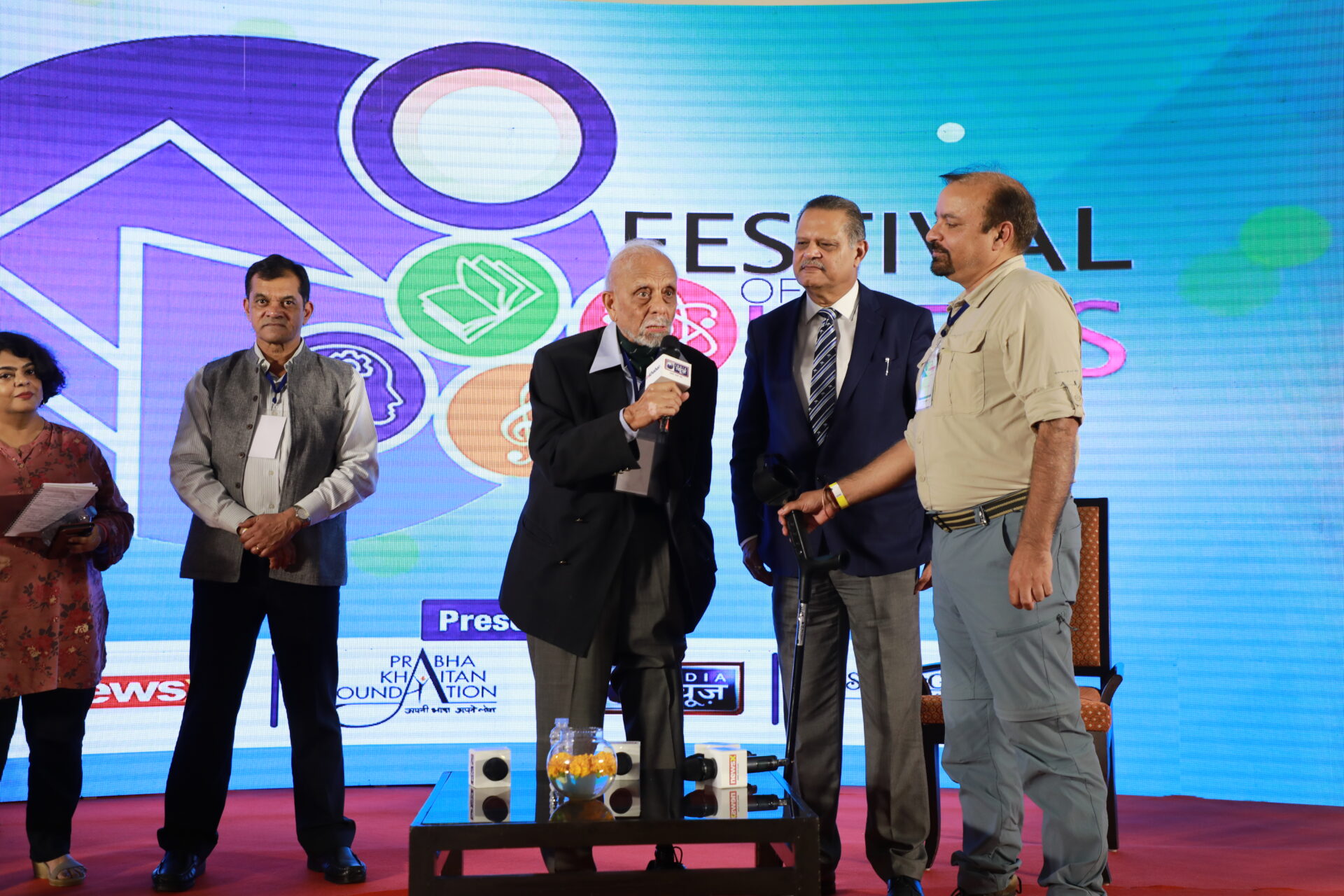New Delhi
Defence and internal security issues were discussed extensively as war veterans, analysts and retired generals, including some who were part of the Uri surgical strike operation, shared their heroic stories in multiple sessions of the Festival of Ideas that saw an overflow of patriotism.
Addressing the audience at the event, hosted by NewsX, The Sunday Guardian, and India News that are a part of the iTV Network, Major General Ian Cardozo narrated absorbing anecdotes from the Pakistani-Bangladesh War of 1971and also encouraged the young to join the Army for an exciting career. “Excitement comes looking for us in the Army,” he said.
He also called for the defence authorities to use marigold flower to honour the fallen heroes rather than the red poppies that have been used in wreath-making since the colonial era. At a session on “The Ideas We Fight For”, moderated by The Sunday Guardian Editor Joyeeta Basu, Major General Cardozo hailed the military leadership and said, “A jawan fights for his officer, great armies have great commanding officers who can motivate their men to lay down their lives with him.”
Author and journalist Sandeep Unnithan said India cannot afford to feel safe or secure just because Pakistan continues to face internal disturbances, but, on the contrary, there could actually be more terror attacks from across the border as decision-makers there might use such attacks as a tactic to divert the attention of the protesting masses in that country.
Unnithan said, “India is confronted with two nuclear-powered powers with whom it has unsettled boundaries.” In such a scenario, India cannot afford to relax, he said, adding that we were living in a world of VUCA—volatility, uncertainty, complexity, and ambiguity. Pakistan is facing internal imbalances, which ultimately hamper our national security. The development of friendly ties between Pakistan and China has added to it. To counter the Chinese, the Indian Army recently deployed counter-drone systems to counter swarm drones because there have been reports of swarm drones, small anti-personnel drones, being spotted in the North East. The Chinese have been using this standoff, which is now 3 years old and entering its 4th year, to deploy a lot of technologies of the kind that they would use against us in actual combat. And how the Chinese work is very simple; they hide their strength and bide their time, as Deng Xinping had said. This is exactly what they have done over the last 10 years.
They have built up a kind of thing of allowing to fire-wall South Asia. Till they could bring their economy up to scratch, build up their infrastructure, and come on the border, once they built up their infrastructure, they pushed their armed forces forward to present a threat, said the panelist.
And the threat is much more than just military power; it is also cyberattacks. It could be instigated by North Eastern groups, which have deep linkages with the countries of the North East. “We have 4000 km of unsettled boundaries with China, and this is the world’s longest unsettled boundary. They have built up an infrastructure that allows them to pressure you at any point that they choose.”
“And at the same time, you have an unsettled border with Pakistan, which is again a nuclear power and uses terrorists as an instrument of state policy. There are very few countries in the world that use terrorism as an instrument of state policy in the blatant way that Pakistan has been doing for the last 10 years. It is not just aggression; it is a no war, no peace kind of threat. You can never be secure or safe assuming that Pakistan has internal problems and therefore there won’t be any 26-11 kind of strike. I argue that there could actually be more terrorist attacks,” said the expert.
As far as Pakistan is concerned, Pakistan has really been a test bed for foreign equipment. They tested that equipment. A lot of Chinese equipment is also now coming into Pakistan through proxy. Even if the Chinese don’t directly fight with us, they would expect somebody else to fight with us to test their equipment, and I think that is where we have to prepare ourselves. They might feel that in 1999 we were the hot toys. Today, China is a bigger dictatorship than it was 50 years ago. China is going back to where Mao was, and Xi Jinping is not Gorbachev; he is another Mao, said the panelist.

